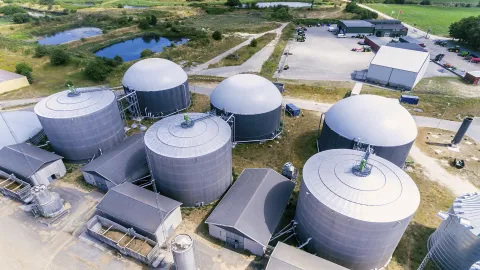Launched in January 2023, BioBoosters – Boosting Circular Transition – project connects 9 regions with strong bioeconomy innovation ecosystems to help circular bioeconomy business transition in Baltic Sea Region with a hackathon service. Bioeconomy Innovation Accelerator run by Jamk University of Applied Sciences from Central Finland has piloted a hackathon service with 12 companies to help find solutions to sustainability challenges. Now this hackathon model is taken international with the support of a 3-year project and a budget of 2.8 million Euros. The project is co-financed by the Interreg Baltic Sea Region programme and European Regional Development Funds.
Calls for innovation in 7 countries
BioBoosters partnership will implement 18 hackathons in international network co-operation. Each hackathon has a leading bioeconomy company as a challenge provider. These challenge providers as well as mentors and solution providers are searched from Sweden, Finland, Germany, Poland, Estonia, Latvia, and Lithuania. The challenges are focused on the circular economy transition of bioeconomy business, in other words, the application of circular economy business models in the bioeconomy companies. The aim is to design, pilot, and refine an international co-operation model and service concept for organising hackathons, to be used also after the project lifetime.
Partnership involves business clusters, science and business parks, NGOs, sectoral agencies, and innovation platforms of higher education institutes that are all key meeting places and connectors of their regional bioeconomy innovation ecosystems. Partners are strongly connected in business and research fields. Each partner will organise two hackathons in collaboration with the challenge providers from bioeconomy industry.
International hackathon initiates cross-sectoral and inter-regional co-operation
When organising a hackathon, a key benefit of the international co-operation is the access to a greater and more diverse network of potential solution providers. As the partners have in depth knowledge of their regional and national networks, they are able to reach potential solution providers more effectively. As the involved regions have different bioeconomy strengths, there are more opportunities to find needed knowhow and innovations to the circular transition challenges. Via cross-sectoral connections and multidisciplinary co-operation, there is a greater potential to discover out-of-box solutions that can have a significant impact to business competitiveness and sustainability.
For SMEs and startups in the Baltic Sea Region, hackathons offer an international platform for showcasing and refining innovative ideas with potential clients. Hackathons can help SMEs and startups in starting a dialogue with leading bioeconomy companies. This can result in co-operation to pilot new solutions or in commercial deals. International mentoring will also provide a wider perspective in the market opportunities across the Baltic Sea Region. Furthermore, as the hackathon process involves mentoring and networking, the outcome can often be new regional development or research projects that bring together wider partnerships.




